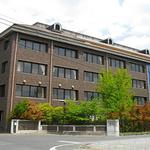Introduction to Gunma University of Health and Welfare
Overview
Gunma University of Health and Welfare is a private university located in Maebashi City, Gunma Prefecture, Japan, established in 2002. The school was founded by Masahiro Nagao and was originally named Gunma University of Social Welfare. It was renamed Gunma University of Health and Welfare in 2010. The school aims to cultivate high-quality medical and welfare talents with professional knowledge and practical ability, emphasizing students' practical operation ability and ability to solve practical problems. Gunma University of Health and Welfare has multiple faculties and research departments covering a wide range of medical and welfare fields, providing students with rich learning and research resources.
Campus
The main campus of Gunma University of Medical Welfare is located in Maebashi City, Gunma Prefecture. The specific address is as follows:
Address: 191-1 Kawanakawa-cho, Maebashi City, Gunma Prefecture
Tel: +81-27-242-6111
Official website: Gunma University of Medical Welfare official website
Educational philosophy
Gunma University of Medical Welfare adheres to the educational philosophy of "cultivating talents with a high sense of social responsibility and professional skills through medical and welfare education", and emphasizes the cultivation of students' independent thinking and practical abilities. The school is committed to cultivating high-quality medical and welfare talents with professional knowledge and practical abilities through a comprehensive education system, and contributing to the development of society.
Disciplines and majors
Gunma University of Medical Welfare has multiple faculties and graduate schools covering a wide range of fields:
Faculty of Health and Medical Sciences
Nursing discipline: Learn the basic theories and practical methods of nursing, and cultivate professional nurses who can work in hospitals, clinics, nursing homes and other fields.
Physical therapy: Learn the basic theories and practical methods of physical therapy, and cultivate professional physical therapists who can work in rehabilitation centers, hospitals, clinics and other fields.
Occupational therapy: Learn the basic theories and practical methods of occupational therapy, and cultivate professional occupational therapists who can work in rehabilitation centers, hospitals, clinics and other fields.
Speech and hearing science: Learn the basic theories and practical methods of speech and hearing science, and cultivate professional talents who can work in speech and hearing rehabilitation, special education and other fields.
Faculty of social welfare
Social welfare: Learn the basic theories and practical methods of social welfare, and cultivate professional social workers who can work in social welfare institutions, community services and other fields.
Graduate school
Graduate school of health and medical science
Department of health and medical science: Master's and doctoral courses, learn advanced theories and practical methods of health and medical science, and cultivate professional talents who can work in academia, research institutions, educational institutions and other fields.
Graduate school of social welfare
Department of social welfare: Master's course, learn advanced theories and practical methods of social welfare, and cultivate professional talents who can work in academia, research institutions, educational institutions and other fields. Special courses
Nursing: Learn the basic theories and practical methods of nursing, including basic nursing, clinical nursing, nursing management, etc.
Physical therapy: Learn the basic theories and practical methods of physical therapy, including rehabilitation assessment, treatment technology, rehabilitation management, etc.
Occupational therapy: Learn the basic theories and practical methods of occupational therapy, including rehabilitation assessment, treatment technology, rehabilitation management, etc.
Speech and hearing: Learn the basic theories and practical methods of speech and hearing science, including speech assessment, treatment technology, special education, etc.
Social welfare: Learn the basic theories and practical methods of social welfare, including social work, community service, policy making, etc.
Graduate school: In-depth research on advanced theories and practical methods of health care and social welfare, and cultivate professional talents who can work in academia, research institutions, educational institutions and other fields.
Practical teaching
Gunma University of Medical Welfare attaches great importance to practical teaching, has advanced laboratories and practice bases, and provides students with rich practical teaching resources. The school has established cooperative relationships with many hospitals and research institutions, providing students with rich internship and practice opportunities. The school also has practice platforms such as simulated hospitals, laboratories, and studios, providing students with a platform for practical operations.
International Exchange
Gunma University of Medical Welfare actively participates in international exchange programs and has established cooperative relationships with universities in many countries to provide students with opportunities for overseas study and exchange. The school has an International Student Office to provide comprehensive support and services to international students.
Employment Situation
Gunma University of Medical Welfare has performed well in terms of employment rate. According to the latest statistics, the employment rate of graduates is relatively high. The school has a career guidance center to provide students with employment consultation, resume writing guidance, and interview skills training to help students find employment smoothly.
Cost
Admission fee: about 200,000 yen
Tuition fee:
About 1.2 million to 1.5 million yen per year (depending on different departments and subjects)
The specific cost may vary. It is recommended to consult the school directly for the latest information.
Campus
Gunma University of Medical Welfare has a beautiful campus environment and complete facilities, including modern teaching buildings, laboratories, libraries and sports facilities. The school also has student dormitories to provide convenient living conditions for out-of-town students.
Contact Information
Tel: +81-27-242-6111
Fax: +81-27-242-6112
Email: info@gunma-u-hw.ac.jp
Other Information
Internship Opportunities: The school has established cooperative relationships with many hospitals and research institutions, providing students with abundant internship and practice opportunities.
Employment Support: The school has a career guidance center to provide students with employment consultation, resume writing guidance, interview skills training and other services to help students find employment smoothly.
Scholarship System: The school has a variety of scholarship systems to help students reduce their financial burden.
-
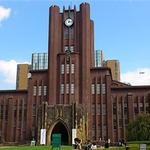
The University of Tokyo
-
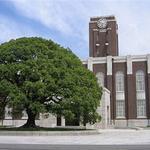
Kyoto University
-
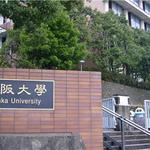
Osaka University
-
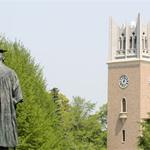
Waseda University
-
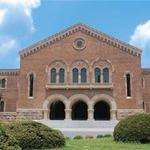
Hitotsubashi University
-

Nagoya University
-
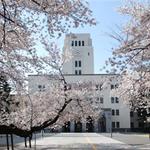
Tokyo Institute of Technology
-
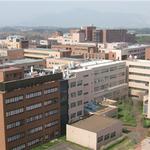
University of Tsukuba
-

Keio University
-
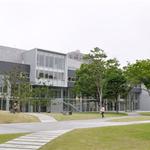
Tohoku University
-

Mesoamerican University
-

Istmo University
-

Mariano Galvez University of Guatemala
-

Regional University of Guatemala
-

Galileo University
-

Francisco Marroquín University
-

Rafael Landívar University
-

University of the Valley of Guatemala
-

University of San Carlos of Guatemala
-

Technological Institute of Tlaxcala Plateau
-

Golfo University
-

Technological University of South Sonora
-

Technological University of Huejotzingo
-

Tizimín Institute of Technology
-

Chilpancingo Institute of Technology

